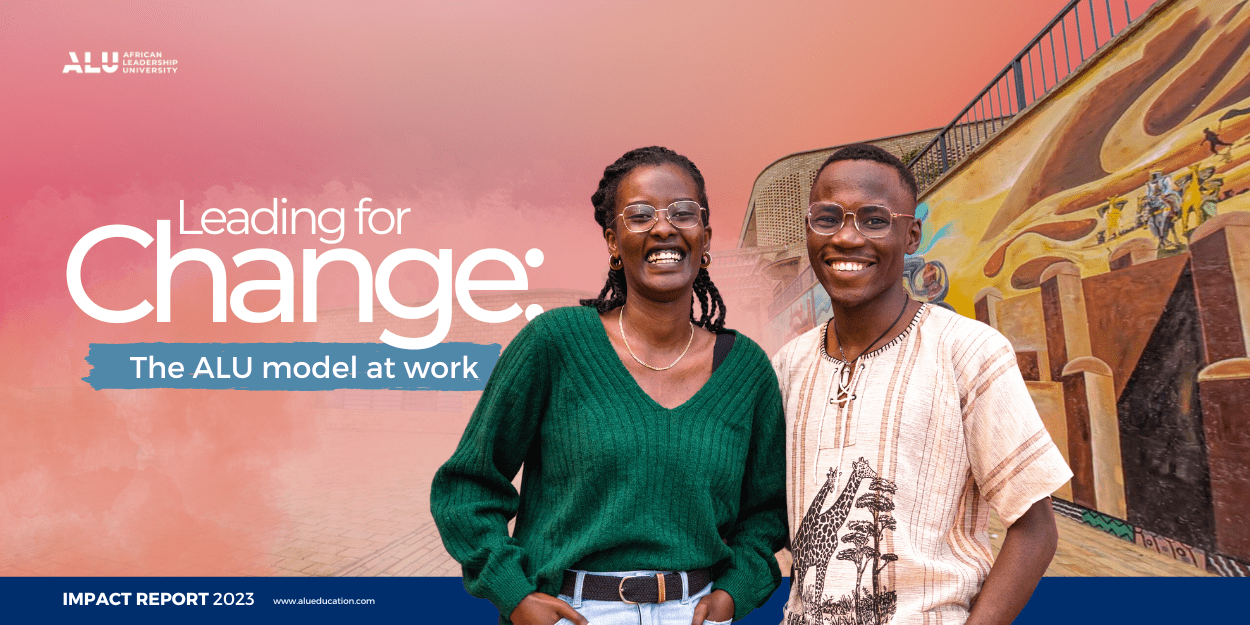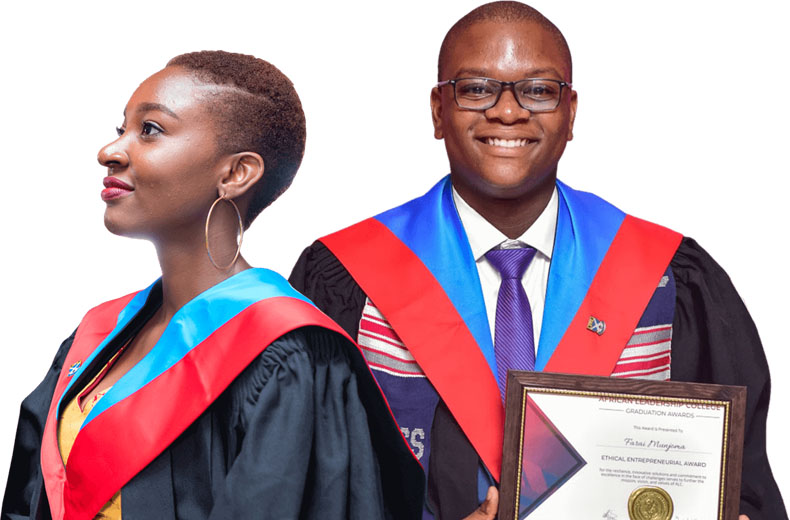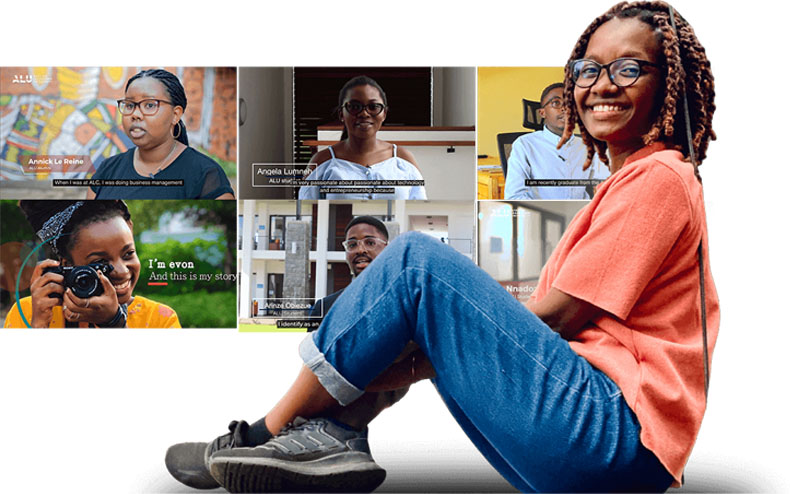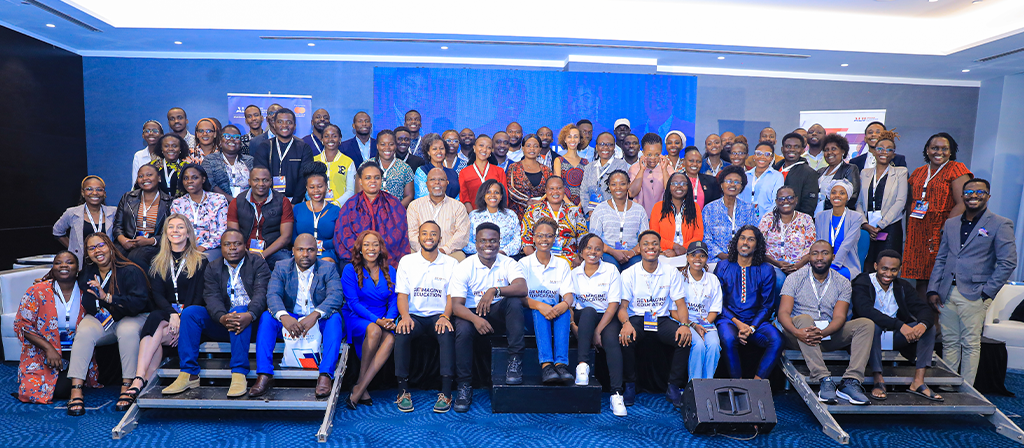I rarely think about this question in my daily tussles with machine learning and software development concepts. Once in a while, often in a moment of mathematical frustration, I try to conceptualize a future in which these classroom concepts could come clutch, but rarely do I question their relevance in shaping Africa’s future. However, this question took center stage as the theme for my past weekend. The Reimagine Education (RIE) conference took place in my city, Nairobi, bringing to town high-level educators and stakeholders in Kenya and beyond, all seeking to rethink the model, and the role of the current education systems in Africa. As I sat through each of the day’s sessions, I could not help but think, albeit uncomfortably, about the relevance of my education.
Veda Sunassee, ALU’s CEO, started the conference by providing context for the day’s conversations. In his usual calm and confident voice, backed by well crafted, minimalistic slides, he took us through the statistics of the population boom in Africa. He further expounded on the need for an African centric education system that will ideally develop problem solvers and lifelong learners. At the heart of Veda’s presentation was the emphasis on reinvention and adaptability of the self as the basis for future social-economic sustainability. Conclusively, Veda drew us in to the question of the day; How do we develop lifelong learners and critical problem solvers, through our education systems?
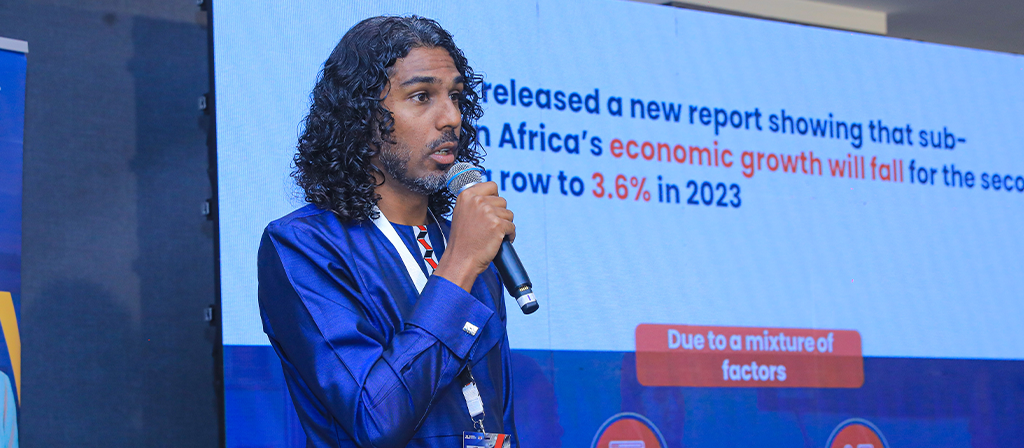
As I pondered over Veda’s presentation, it was clear that ALU’s new model is a timely solution to harnessing the youthful African powerhouse. Nonetheless, Elizabeth Otieno (Deputy Director Kenya Ministry of Education) opened a new perspective to this incredible model. Mrs. Elizabeth contextualized the conversation even further by highlighting the disparities in access to physical learning spaces in Kenya. She passionately highlighted the similarities between the new Curriculum Based Curriculum (CBC) in Kenya, and ALU’s model, citing adaptation to technological changes as the common basis for both learning models. However, much like Veda, Mrs. Elizabeth posited another important question; How can we expand the educational model of ALU in terms of its reach and in physical locations?
Both Veda and Mrs. Elizabeth provided context as to why we need to rethink education systems in Africa and also touched slightly on expanding physical access to institutions as a critical first step. Conversely, Professor Joachim Osur delved into the intricacies of knowledge, intelligence, and their relation to wealth distribution. Conventional education systems emphasize acquisition of knowledge over intelligence. Whilst knowledge is important in today’s information age, the creation of wealth is highly dependent on creative thinking, interpersonal communication skills and problem-solving skills. It was quite eye-opening to unravel that professional skills, though important, are only second to intelligence, which by a large margin is about the ability of a learner to integrate themselves with other human beings and solve problems while at it.
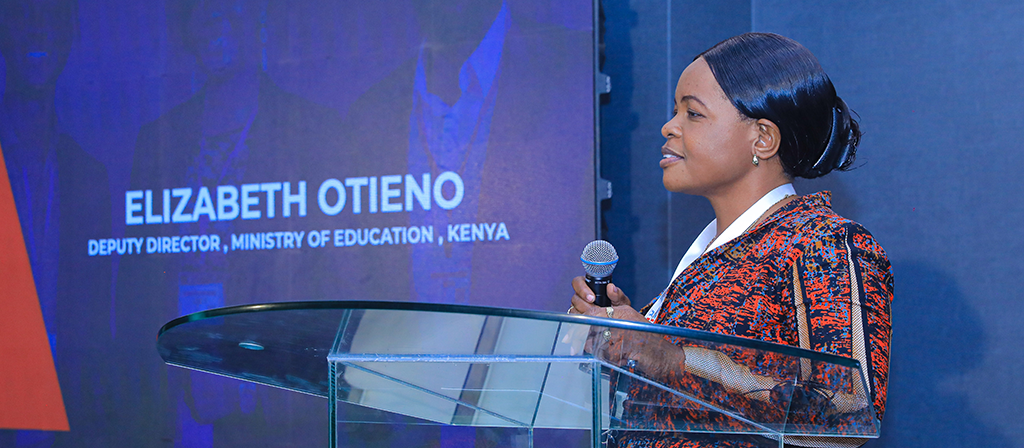
The panel discussion was admittedly my favorite session of the entire event. It fused together all the ingenious remarks from the morning’s speakers in a witty story telling manner. In retrospect, whilst each of the panelists responded to a different question, there was an overall resonance with a switch to competency-based metrics of testing, and a further emphasis on imbuing learners with problem solving and inter-human values and skills. Sean Karanja, an ALU alumni, humorously shared his experience with losing ‘millions’ in 6 months, and the role that ALU played as a space to incubate his mind and his failures.
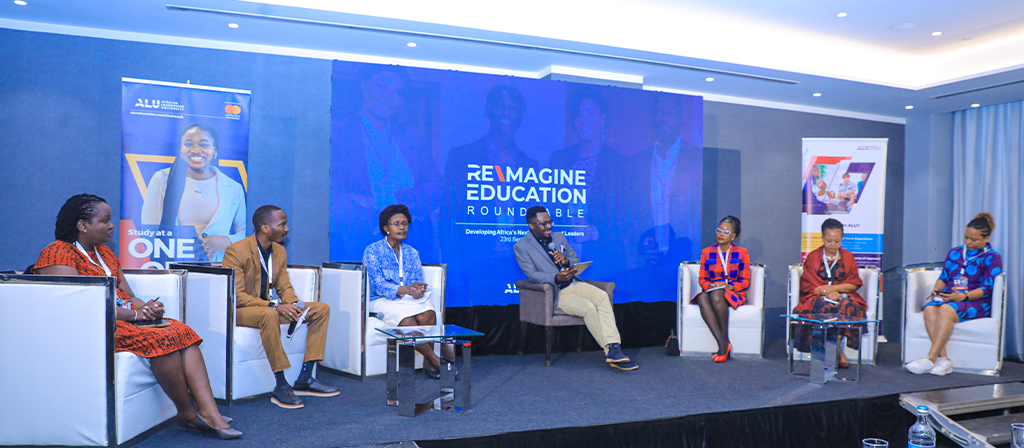
“Spaces that you are not just taught how to think big but also how to maneuver the challenges that come with thinking big craft learners that are able to think big things and pivot in a safe place”, Sean Karanja.
Spaces that you are not just taught how to think big but also how to maneuver the challenges that come with thinking big craft learners that are able to think big things and pivot in a safe place.
Sean Karanja
Listening through each of the sessions at RIE underscored the imperative need for education systems that nurture adaptable problem solvers and lifelong learners. In a dynamic and ever-connecting world, education must extend beyond knowledge acquisition and imbue learners with inter-personal skills that will allow them to integrate into societies and advance their social economic lives. In essence, collaboration has been the bane of human success over the centuries and in true form, cultivating inter-personal skills through our African education systems will be the catapult for our continent. Current education systems will need a redraft to develop the much-needed problem solvers and critical thinkers needed for this catapult. More importantly, I feel that an education steeped in promoting these interhuman skills will be etched in Ubuntu, our own African system, that will raise an even more collaborative African generation.
Later in the evening, I joined Dr Thwala’s workshop on a mission driven education by Africans. It is often hard to think about how high the stakes are for our continent as an individual, but as I listened through his remarks, it became clear that we are currently at the cusp of a new age for the continent and my peers and I are right at the center. While it is enticing to think about the opportunities for individual social-economic advancement that lie ahead of us, it is unsettling to think about a future in which only a handful of us can make ends meet. As Dr Thwala put it,
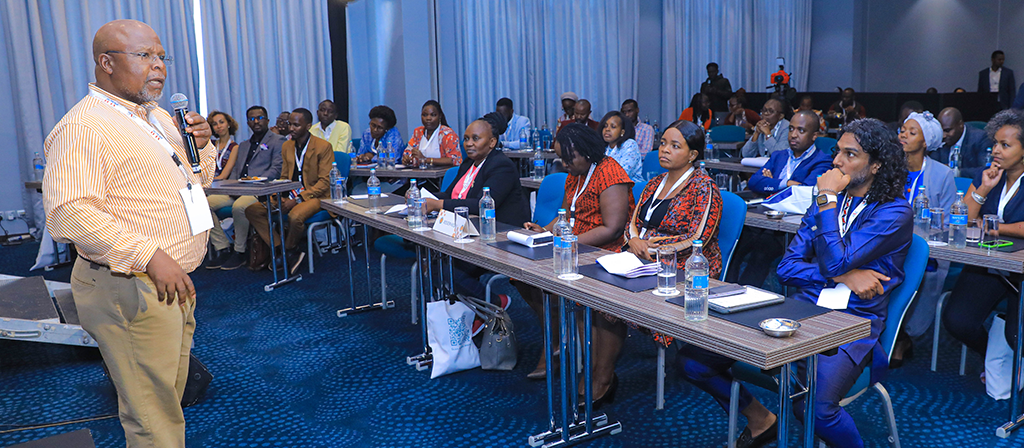
“If we do not harness this population boom, we face a danger of political instability in the world which might be the cause for a recolonization of the continent.”
Dr Thwala
Rightly so, the relevance of my education is not just a personal matter; it is intricately tied to the future of an entire continent. The choices we make, the knowledge we acquire and the actions we take will play a pivotal role in shaping Africa’s destiny. It is a responsibility we must embrace with humility and commitment to ensure that the promise of education reaches every corner of our diverse and dynamic continent.

